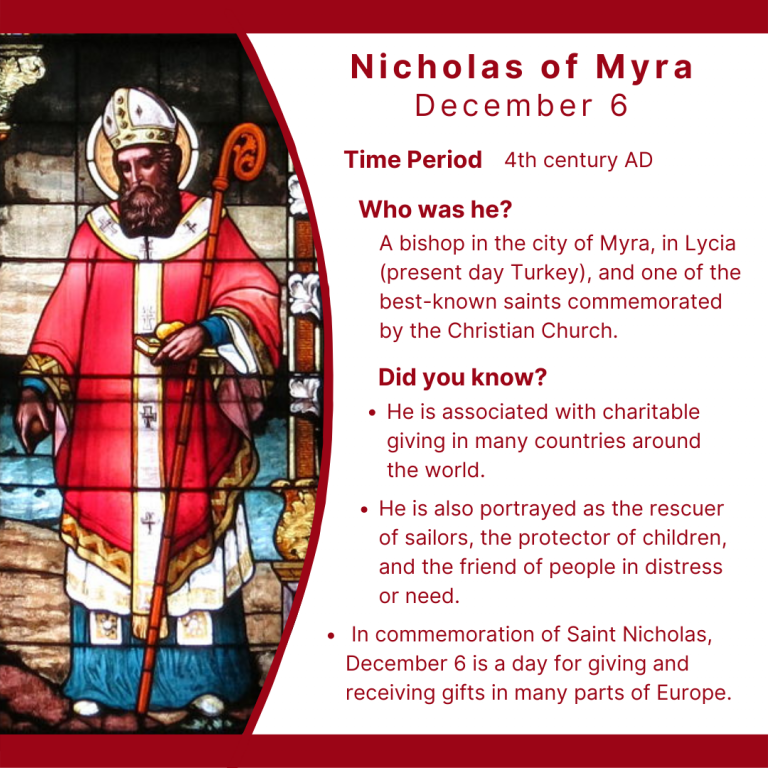Stand Firm in Christ’s Armour
 by Thomas M. Winger
by Thomas M. Winger
“Be watchful, stand [firm] in the faith, be manly, be strong” | 1 Corinthians 16:13
With four punchy imperatives Paul draws to a close his first epistle to the Corinthians. Five hundred years ago, Martin Luther took this exhortation to heart and stood firm at Worms. And by adopting this theme verse for our synodical convention we are confessing that what Paul wrote to the Corinthians he also wrote to us.
We tend to think the greatest problems of our age are the headline issues: the COVID-19 pandemic, the people who’ve been harmed physically and mentally, the division it has brought to both society and church as we struggle to know how to act. We think the godless government is our great enemy, as it restricts Christian worship and pushes an agenda of death through abortion and assisted suicide. We think the great threat to our children’s future is woke-ism and critical race theory. These are, indeed, great dangers, and should be fought tooth and nail. But they are only superficial symptoms of a deeper underlying battle—like the cloud of smoke over a battlefield or the waves of an advancing submarine. They’re the weapons of battle but not the true Enemy.
We stand firm not simply because the greater victory has already been won, but because any further victory in this dark spiritual fight will be won not by us but by Christ.
Ephesians chapter six, with its magnificent portrayal of the armour of God, is rightly beloved by many Christians. But we sometimes forget why such armour is needed! We are in a battle, but it’s a battle that’s spiritual, not fleshly, in nature.
“See to it that you are on the look-out for the enemy, ready to defend yourselves against his angels,” Martin Luther imagines Jesus encouraging us. “As long as you do that,” Luther says, “you need have no fear. For we belong to a Lord who has angels Himself and power enough, and is called the Lord of hosts and the true victor over the dragon, and He stands by us, even fights for us, so that the devil and all his angels will fall down and be cast out. For the Word of the Lord abides forever.”
With Christ as our captain, we don’t enter into battle with fear, wondering what the outcome might be. The victory is assured by His mighty power. His army consists in far more than what we see. We do not fight alone. Christ will not be defeated. His Word will never fail.
One of the greatest biblical pictures of this reality comes in a brief story in 2 Kings 6. Every attempt by the king of Syria to attack Israel has been thwarted; it is as if their army knows ahead of time where the Syrians are going to attack. In fact, Elisha the prophet has been delivering that intelligence through revelation. Realising that he will never win the war without eliminating the prophet, the Syrian king sends a great army to surround Elisha in the city of Dothan. Terrified by the forces arrayed against them, Elisha’s servant cries out, “Alas, my master! What shall we do?” (6:15).
[Elisha] said, “Do not be afraid, for those who are with us are more than those who are with them.” Then Elisha prayed and said, “O Lord, please open his eyes that he may see.” So the Lord opened the eyes of the young man, and he saw, and behold, the mountain was full of horses and chariots of fire all around Elisha. | 2 Kings 6:16-17
Through the prophet, God showed the poor lad the true nature of the battle. It wasn’t Elisha and his servant who were outnumbered and outmatched by the army surrounding them, but rather the reverse.
That’s Paul’s message for us in Ephesians chapter six too. On the one hand, he shows us that our battle is not against the people we see but more truly against the demonic forces of the old evil Foe—a potentially frightening revelation. At the same time, he teaches that our strength lies not in our human flesh but in the spiritual forces of Christ and the great armour He gives us. Truly those who are with us are more than those who are with them—or put more clearly, the One who fights for us is greater than the one who fights for them.
To us God has given the supernatural armour that makes His victory ours. We stand in that armour by trusting in our Baptism, listening to His Word, feeding on the rations of His Supper, taking up again and again the full armour of Christ’s truth, righteousness, and Gospel peace, the faith He gave, the salvation He won, and the powerful Word He wields.
Luther’s hymn makes the situation clear: “With might of ours can naught be done, Soon were our loss effected; But for us fights the valiant One, Whom God Himself elected. Ask ye, Who is this? Jesus Christ it is, Of Sabaoth Lord, And there’s none other God; He holds the field forever” (LSB 656:2).
Paul begins his speech to the troops by pointing out where our true strength lies: “be strengthened in the Lord, that is, in His mighty strength” (Ephesians 6:10). There is a deeper truth that underlies Paul’s confidence, and that’s the message that, while the battle certainly rages on, the war itself has already been won. As Paul has stressed earlier in Ephesians 1:19-22, Christ—through His death, resurrection, and ascension into heaven—has already beaten the old evil Foe, who now lies impotent like a defeated king with Christ’s foot upon his neck. That victory is made ours through our Baptism into Christ’s body. If we are united with Him, then everything He has won is ours, everywhere He has gone we have gone, every enemy defeated by Him has been defeated for us.
Because we are baptised into Him, we are already raised from the dead as He is; we are already lifted up into heaven where He is; we are already rescued from the troubles of this life. Yes, all this is the presupposition for how Paul describes the battle in which we are engaged. It’s a battle that Christ has won already. It’s not our calling to win the world for Jesus; He has already won it for us. It is not our calling to “stand up, stand up, for Jesus;” He has stood up for us. Far more faithful to Paul are the words of Luther’s hymn: “This world’s prince may still Scowl fierce as he will, He can harm us none. He’s judged; the deed is done” (LSB 656:3).
It’s this confidence, that the war has already been won by Christ, that leads Paul to focus his exhortation on the seemingly foolish posture of standing. Three times Paul calls on us to stand:
Let yourselves be clothed with the full armour of God so that you may be able to stand against the devil’s schemes. For our struggle is not against blood and flesh, but against the rulers, against the authorities, against the world powers of this darkness, against the spiritual [forces] of evil in the heavenly [places]. For this reason take up the full armour of God, that you may be able to withstand in the evil day, and so, having accomplished all things, to stand. Stand, therefore… | Ephesians 6:11-14
The repetition of “stand!” highlights it as Paul’s central thought. The contrast between standing and attacking is striking. Holding one’s ground until the decisive moment, luring in the enemy, may be a cunning tactic, but that’s not what Paul has in mind. The point, rather, is that we are not the ones fighting the battle but the ones for whom it has already been won. And so, our position is one of defence not offence.
With Christ’s victory won, the only one on the attack is the devil, who flails out in anger from his position of defeat, firing fiery arrows and hoping in his dying breath to drag a few of his enemy’s troops down with him. The imperative for us who are conscripted into Christ’s army is to stay where He put us. We aren’t called upon to take ground from the evil Foe but to stand in the safety of the ground Christ won. Our God is our refuge, and the Christian Church is the walled city where He keeps us safe. Though we face an evil day, we need only stand firm for a little while longer. For Christ is coming soon.
This is our hope, that on the Last Day Christ will deliver us from all evil into the eternal kingdom of our Father. But there’s more to the promise than that future rescue. For, as Luther also put it, “He’s by our side upon the plain With His good gifts and Spirit” (LSB 656:4). That is to say: we stand firm not simply because the greater victory has already been won, but because any further victory in this dark spiritual fight will be won not by us but by Christ. Luther gifted us with this promise by translating one of the most powerful and beautiful hymns of the ancient church:
Grant peace, we pray, in mercy, Lord;
Peace in our time, O send us!
For there is none on earth but You,
None other to defend us.
You only, Lord, can fight for us.
— LSB 778
If we are to stand firm in the face of a hostile world, false teachers masquerading as church, and the demonic forces that drive them both, we must stand on and with God’s Word. To stand firm isn’t a position of weakness and inaction, but a confident stance in the place where God has put us. From His Word we know that the real enemies aren’t those we see but those we don’t. From God’s Word we know that our spiritual enemies are fierce and can’t be defeated by earthly means. This is a sober warning not to put our confidence in human institutions, political processes, or military strength. But from God’s Word we also know that He has gone into battle for us and won the victory. Christ defeated the devil, tamed and imprisoned him, and left him on such a short leash that he can only flail at us from afar.
To us God has given the supernatural armour that makes His victory ours. We stand in that armour by trusting in our Baptism, listening to His Word, feeding on the rations of His Supper, taking up again and again the full armour of Christ’s truth, righteousness, and Gospel peace, the faith He gave, the salvation He won, and the powerful Word He wields.
Only the message of Christ’s victory could embolden a poor young monk to stand before the Emperor and cling to what God had taught him. Only such a message can give us hope and confidence in times that seem dark and hopeless. So Paul exhorts us:
For this reason take up the full armour of God, that you may be able to withstand in the evil day, and so, having accomplished all things, to stand. | Ephesians 6:13
———————
Rev. Dr. Thomas M. Winger is President of Concordia Lutheran Theological Seminary in St. Catharines, Ontario. This article is adapted from his presentation at Lutheran Church–Canada’s 2022 synodical convention.



